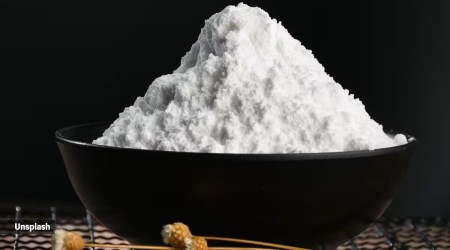World Organ Donation Day: Here’s what you need to know before you pledge your organs
Every year, the World Organ Donation Day is celebrated on August 13 to sensitise people of the need to donate organs and save lives. The day is a wonderful chance for everyone to make a decision to donate their priceless organs.
 Organ donation in India is regulated by the "The Transplantation of Human Organs Act" enacted in 1994. (Source: Freepik)
Organ donation in India is regulated by the "The Transplantation of Human Organs Act" enacted in 1994. (Source: Freepik)While the thought of death may seem too grim, deciding to donate your organs or tissues after death is a noble cause which can save someone’s life. Every year, the World Organ Donation Day is celebrated on August 13 to sensitise people of the need to donate organs and save lives. The day is a wonderful chance for everyone to make a decision to donate their priceless organs.
According to Dr Sanjeev Gulati, Executive Director, Nephrology & Kidney Transplant, Fortis Escorts, Okhla Road, New Delhi, the shortage of organs is a universal problem.
“India too has a wide gap between those who need transplants and the organs that are available — creating a huge demand-supply gap. This is further exaggerated by low organ cadaveric organ donation. One of the prime reasons for this is the lack of awareness among the public about the process of organ donation and the prevalence of numerous myths,” he said.
Citing that organ donation in India is regulated by ‘The Transplantation of Human Organs Act’ enacted in 1994, Dr Gulati said that the act prohibits the sale and purchase of organs. As per the act, only near relatives of the patients can donate organs, thus making the organ trade a punishable offence.
Dr Divya Singh, Senior Surgeon, Ram Manohar Lohia Hospital, Director, Maaiya Social Change Front Foundation further highlighted the importance of organ donation, noting that it provides a lifeline to people facing terminal illnesses — enabling them to regain health and rebuild their futures.
“Beyond individual impact, organ donation profoundly impacts society and healthcare systems by reducing strain on medical resources and alleviating the economic burden of chronic ailments — enhancing resource allocation efficiency,” she said.
Urging us to sign a pledge in our lifetime to donate organs, the experts listed some dos and don’ts of organ donation to make the process easier to understand.
 India too has a wide gap between those who need transplants and the organs that are available — creating a huge demand-supply gap. (Source: Freepik)
India too has a wide gap between those who need transplants and the organs that are available — creating a huge demand-supply gap. (Source: Freepik)
*There are two types of organ donations — living and deceased organ donation. While living donors can either be a near relative or a distant relative or a friend, for deceased organ donation, a person needs to pledge his or her organs on the National Organ and Tissue Transplant Organisation (NOTTO) website.
*A lot of people are not aware that in India, organ donation is only possible after death if it is a case of brain stem death — when there is an irreversible loss of consciousness, absence of brainstem reflexes and irreversible loss of capacity to breathe.
*Do not assume that you are unfit to donate organs if you are not well. There is a team of medical experts which carefully evaluates all the reports before they give a go-ahead for organ donation.
*Do not pressurise any person to donate an organ. This is an entirely voluntary act.
*Organs that can be donated include kidneys, livers, pancreases, lungs and hearts, while tissues constitute the eyes, skin, bone, bone marrow, nerves, brain, heart valves, eardrums, ear bones and blood.
*A donor card only shows the willingness of the person to donate, however, in case of the donor’s death, the hospital has to take consent from the family. Therefore, it is recommended to inform your family so that they can respect your decision.
*Maintaining a healthy lifestyle can improve the viability of your organs for donation. Eat well, exercise regularly, and manage your medical conditions, if any.
*Engaging in high-risk behaviors, such as drug use or risky sexual activity, can affect the viability of your organs for donation.
*Be honest about your medical history and lifestyle habits when registering. Accurate information helps ensure safe organ transplantation.
Concluding, Dr Singh said, “Organ donation is a noble endeavour that can bring hope and healing to those in need. By adhering to these dos and don’ts, you can contribute to the success and safety of the organ donation process — positively impacting countless lives.”
📣 For more lifestyle news, follow us on Instagram | Twitter | Facebook and don’t miss out on the latest updates!
More Lifestyle
Must Read
Aug 13: Latest News
- 01
- 02
- 03
- 04
- 05



























